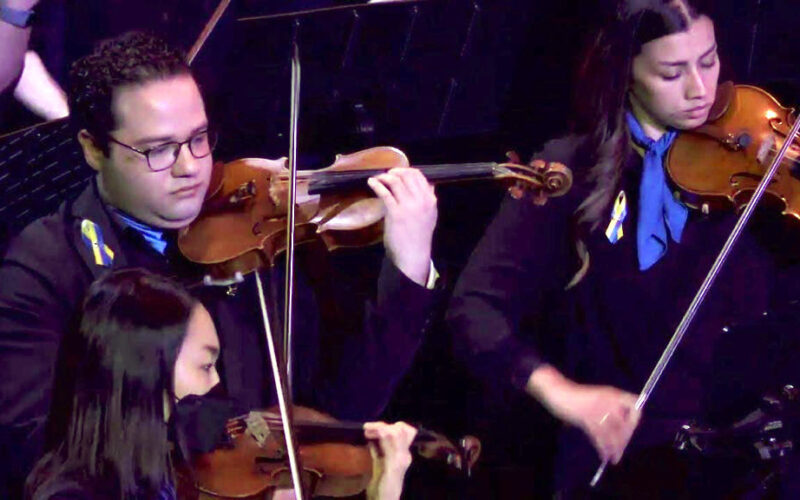BECCA MARTIN-BROWN
bmartin@nwaonline.com
“Patrick Conlon wrote three pieces for us this year, and it’s a wonderful opportunity to work with a composer in depth on various works,” says John Jeter, music director of the Fort Smith Symphony. “It’s a great experience because we can really go after a lot of emotional details as we get to know a composer.”
Conlon is the composer, arranger/orchestrator, audio engineer, and score mixer for Onyx Lane, an Oklahoma-based music production house that composes, arranges and produces music for film, sound installations, live performances and album recordings. He is also the associate director of the Academy of Contemporary Music at the University of Central Oklahoma and has been composer-in-residence for the Fort Smith Symphony’s 2023-2024 season.
He started the symphony’s 100th birthday celebration with “Time Flies,” which debuted Sept. 9, 2023, and he’ll present his final gift of the year March 2, when the full symphonic version of “Phase Change” has its world premiere.
“‘Phase Change’ is the largest of the three compositions I wrote for the Fort Smith Symphony this season, a three-movement, 20-minute-long ‘scientific tone poem’ about the states of matter,” Conlon says. “The piece is an emotional journey of a group of molecules.”
In program notes, Conlon explains that “Phase Change” “draws on two rich artistic inspirations.”
“First, classical instrumental tone poems have a history of being used to depict natural phenomena through sound, with famous examples including Vivaldi’s ‘The Four Seasons,’ Debussy’s ‘La Mer,’ Smetena’s ‘Vltava,’ John Luther Adams’ ‘Become Ocean’ and Meredith Monk’s ‘On Behalf of Nature,’” he says.
“And second, knowledge mobilization of STEM (science-technology-engineering-mathematics) fields through the use of music as a medium to transmit human knowledge.”
Conlon promises that “through this tone poem, audiences will experience a sonic narrative of a group of particles going from absolute zero to 55,000 degrees Kelvin, starting with the eerie supersymmetric quantum choreography of Bose-Einstein Condensates, to the vibrational potential energy of solid crystalline structures, the flow of liquid atoms, the Brownian motion of gas particles, and finally to the electrical conductivity of an ionization wave of plasma.
“These states of phase change happen in three movements: the beautiful and static first movement Bose-Einstein Condensate | Solid; the powerful crashing waves of the second movement Liquid; and the chaotic grooves of the third movement Gas | Plasma,” he explains.
“Patrick’s music is absolutely terrific — very intriguing, very exciting and very fun music,” Jeter enthuses.
“The Fort Smith Symphony is one of the most rambunctious, fun, dedicated orchestras I’ve ever been a part of,” Conlon said last fall. “There is a true joy and rush of excitement to every concert that you don’t find everywhere.”
The March 2 performance also includes Franz Schubert’s “Unfinished Symphony” and Ottorino Respighi’s “Pines of Rome.” Conlon will go on to release a string orchestra version of “Phase Change” in June as part of an upcoming string chamber orchestra album titled “In The Waiting Room.”
“I’m so indebted to John and the orchestra for being willing to go on this journey with me,” Conlon says. “It’s a real honor to have worked with him and the orchestra this whole season, and I think we saved the best for last!”
The Fort Smith Symphony wraps up “RAVE: The Centennial Season” April 20 performing the score for “Star Trek Into Darkness” while the film is screened.
__
FAQ
Fort Smith Symphony:
‘Modern Moves & Epic Journeys’
WHEN — 7 p.m. March 2
WHERE — ArcBest Performing Arts Center in Fort Smith
COST — $25-$55
INFO — fortsmithsymphony.org
BONUS — A free after-party will follow at the Bakery District at 8:30 p.m.



